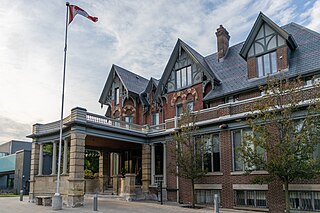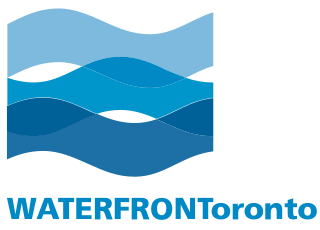Related Research Articles
The Governor General's Awards are a collection of annual awards presented by the governor general of Canada, recognizing distinction in numerous academic, artistic, and social fields.
Total quality management (TQM) is an organization-wide effort to "install and make a permanent climate where employees continuously improve their ability to provide on-demand products and services that customers will find of particular value." Total emphasizes that departments in addition to production are obligated to improve their operations; management emphasizes that executives are obligated to actively manage quality through funding, training, staffing, and goal setting. While there is no widely agreed-upon approach, TQM efforts typically draw heavily on the previously developed tools and techniques of quality control. TQM received widespread attention during the late 1980s and early 1990s before being overshadowed by ISO 9000, Lean manufacturing, and Six Sigma.

The Malcolm Baldrige National Quality Award recognizes U.S. organizations in the business, health care, education, and nonprofit sectors for performance excellence. The Baldrige Award is the highest formal recognition of the performance excellence of both public and private U.S. organizations given by the President of the United States. It is administered by the Baldrige Performance Excellence Program, which is based at and managed by the National Institute of Standards and Technology (NIST), an agency of the U.S. Department of Commerce.
The Trillium Book Award is an annual literary award presented to writers in Ontario, Canada. It is administered by Ontario Creates, a Crown agency of the Government of Ontario, which is overseen by the Ministry of Heritage, Sport, Tourism and Culture Industries. The monetary component for the award includes amounts paid to the author of the book and to the publisher of the book. The award has been expanded several times since its establishment in 1987: a separate award for French-language literature was added in 1994, an award for poetry in each language was added in 2003, and an award for French-language children's literature was added in 2006.

The Royal College of Physicians and Surgeons of Canada is a regulatory college which acts as a national, nonprofit organization established in 1929 by a special Act of Parliament to oversee the medical education of specialists in Canada.
The Canadian Association of Journalists is an independent, not-for-profit organization that offers advocacy and professional development to journalists across Canada. The CAJ was created to promote excellence in journalism and to encourage investigative journalism in Canada. The CAJ presents annual investigative journalism awards, including the McGillivray Award and the Charles Bury Award.

The Writers' Trust of Canada is a registered charity which provides financial support to Canadian writers.
The ACTRA Awards were first presented in 1972 to celebrate excellence in Canada's television and radio industries. Organized and presented by the Association of Canadian Television and Radio Artists, which represented performers, writers and broadcast journalists, the Nellie statuettes were presented annually until 1986. They were the primary national television award in Canada until 1986, when they were taken over by the Academy of Canadian Cinema and Television to create the new Gemini Awards, although ACTRA continued to present Nellies in radio categories.

Branksome Hall is an independent day and boarding school for girls in Toronto, Ontario, Canada. It is Toronto's only all-years International Baccalaureate (IB) World School for girls. Branksome Hall is located on a 13-acre campus in the Toronto neighbourhood of Rosedale and educates more than 900 students from Junior Kindergarten to Grade 12.
The Canadian Centre for Occupational Health and Safety (CCOHS) is an independent departmental corporation under Schedule II of the Financial Administration Act and is accountable to Parliament through the Minister of Labour.

Waterfront Toronto is an organization that oversees revitalization projects along the Toronto waterfront. Established in 2001 as a public–public partnership between the City of Toronto, Province of Ontario and Government of Canada, the organization is administering several blocks of land redevelopment projects surrounding Toronto Harbour and various other initiatives to promote the revitalization of the area, including public transit, housing developments, brownfield rehabilitation, possible removal of the Gardiner Expressway in the area, the Martin Goodman Trail and lakeshore improvements, and naturalization of the Don River. Actual development of the projects is done by other entities, primarily private corporations. The projects include a series of wavedeck walkways and gathering places designed by West 8 and DTAH.
Independent Learning Centre, branded as TVO ILC, is a public online high school in the Canadian province of Ontario. It is the exclusive provider of Canadian Adult Education Credential (CAEC) high school equivalency testing in Ontario, and was the province's provider of General Educational Development (GED) testing before that program was discontinued in Canada in 2024.

Higher education in Ontario includes postsecondary education and skills training regulated by the Ministry of Colleges and Universities and provided by universities, colleges of applied arts and technology, and private career colleges. The current minister is Jill Dunlop who was appointed in June 2021. The ministry administers laws covering 22 public universities, 24 public colleges, 17 privately funded religious universities, and over 500 private career colleges. 18 of the top 50 research universities in Canada are in Ontario.
Karen Rochelle Mock, is a human rights consultant. She was Executive Director and CEO of the Canadian Race Relations Foundation from 2001 to 2005 and prior to that was National Director of the League for Human Rights of B'nai Brith Canada for twelve years, as well as executive director of the League’s Human Rights Education and Training Centre, after several years as a teacher educator.

Archaeological Services Inc. (ASI) is the largest private archaeological and cultural heritage consulting company in Ontario (Canada), with offices in Toronto and Burlington. The company is a part of the Cultural Resource Management (CRM) industry.

Yvan Baker is a Canadian politician who was elected to represent the federal riding of Etobicoke Centre in the 2019 federal election and in the 2021 Canadian federal election. He is a member of the Liberal Party of Canada. Prior to entering federal politics, he served as the Liberal member of the Legislative Assembly of Ontario for the provincial riding of Etobicoke Centre from 2014 to 2018.
Stuart G. Shanker is a research professor emeritus of philosophy and psychology at York University, the founder/CEO of The MEHRIT Centre, and an author and speaker. He has been called an expert on child self-regulation in schools.
Excellence Canada is a nonprofit organization that specializes in the training, implementation and certification of organizational excellence in Canada. Excellence Canada is also the custodian and adjudicator of the Canada Awards for Excellence, under the Patronage of David Johnston C.C., C.M.M., C.O.M., C.D., the Governor General of Canada.
Canadians for A Safe Learning Environment (CASLE), formerly known as Citizens for A Safe Learning Environment, was a Registered Canadian Charity founded in 1992, and based in Nova Scotia, Canada. The organization closed in 2018.
References
- ↑ Beecroft, G. Dennis; Duffy, Grace L. (2003), The Executive Guide to Improvement and Change, Milwaukee, Wisconsin: American Society for Quality, p. 60, ISBN 9780873895798, OCLC 51553408
- ↑ Evans, James R.; Lindsay, William M. (1999), The Management and Control of Quality (4 ed.), Nashville, Tennessee: South-Western College Publishing, pp. 144–145, ISBN 9780538882422, OCLC 38475486
- ↑ Porter, Leslie J.; Tanner, S. J. (1996), Assessing Business Excellence: A Guide to Self-Assessment, Boston, Massachusetts: Butterworth-Heinemann, pp. 70–71, ISBN 9780750624794, OCLC 34115854
- ↑ "Awards". excellence.ca. Toronto, Ontario, Canada: Excellence Canada. Archived from the original on 2014-06-05. Retrieved 2014-06-01.
The Governor General of Canada is the Patron of the Canada Awards for Excellence...
- ↑ "National Quality Institute is becoming Excellence Canada". excellence.ca. Toronto, Ontario, Canada: Excellence Canada. Archived from the original on 2016-11-04. Retrieved 2014-06-01.
- ↑ "Award Categories". excellence.ca. Toronto, Ontario, Canada: Excellence Canada. Archived from the original on 2014-06-02. Retrieved 2014-06-01.
- ↑ "How to Apply". excellence.ca. Toronto, Ontario, Canada: Excellence Canada. Archived from the original on 2014-06-02. Retrieved 2014-06-01.
- ↑ "Adjudication Process". excellence.ca. Toronto, Ontario, Canada: Excellence Canada. Archived from the original on 2014-06-02. Retrieved 2014-06-01.
- ↑ Beecroft, G. Dennis; Duffy, Grace L. (2003), The Executive Guide to Improvement and Change, Milwaukee, Wisconsin: American Society for Quality, p. 61, ISBN 9780873895798, OCLC 51553408